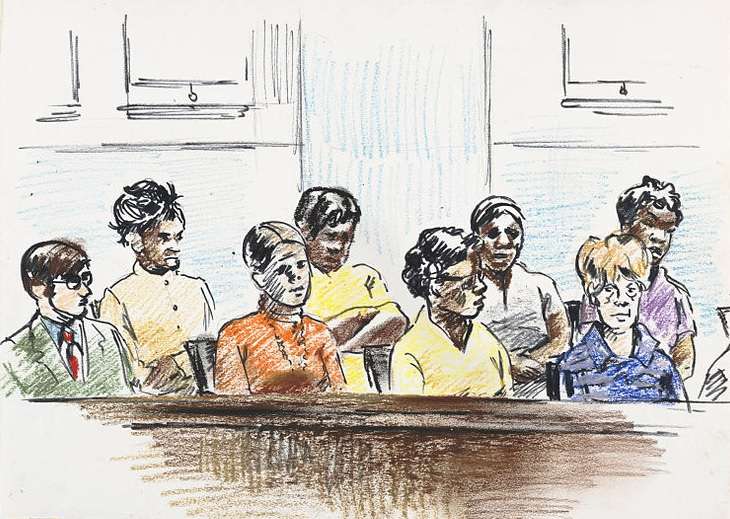After Life Sentence, Juror Says, "Had I known…I would have had to have found not guilty."

Bad laws are often the context for discussions about jury nullification. Drug prohibition, gun bans, gambling restrictions, and other legal intrusions into consensual activities provide great fodder for people who think such rules should meet resistance in the form of "not guilty" verdicts.
But excessive sentencing is another traditional area where jury nullification comes into play. Tough on crime policies have led to some perverse results—such as a life sentence with no chance of parole for a non-violent burglar. At least one of the jurors in a Louisiana case says he would have voted "not guilty" if he'd know the harshness of the potential sentence for a man who faced a penalty out of proportion to his crime.
Writes Mike Perlstein at WWLTV:
[Troy] Ellis, 50, grew up in a large, loving family in the Broadmoor neighborhood of New Orleans. He's also a heroin addict and career criminal, going back and forth to prison on drugs charges, as well as burglaries and thefts that helped him feed his habit.
As a non-violent offender, Ellis had always been given a chance to turn things around, a rocky road to redemption that has included church, drug rehabilitation and relapse.
Those chances came to a screeching halt after his most recent tumble into the dark dependency of heroin. Addicted and desperate, Ellis was booked in a simple burglary in 2010 with an unlikely co-defendant. His alleged partner in crime was Patrick Constantin, a then-25-year-old from a successful Uptown family.
The two men shared a heroin addiction and non-violent rap sheets, according to police reports and court records, but the similarities end there.
Ellis was sent to prison to die behind bars, hit with a life sentence without parole.
Constantin is a free man today after being sentencing to six years for the same crime, then being released on good time after serving less than three.
The disparity in the sentences shocked not only Ellis' attorney and family, but even some of the jurors who convicted him.
"Clearly this was a situation where the punishment does not fit the crime," said Randy Waller, one of the jurors who voted to convict Ellis by a 10-2 verdict. "No one got killed. There was no weapon involved.
Waller adds, "Had I known that this was a potential outcome, it was on the table for him and the sentence, I would have had to have found not guilty."
The victim in the burglary case was a prosecutor in the District Attorney's (DA) office, which raises concerns that the case might have received some special attention. And Constantin, who was the only witness to place Ellis at the crime scene and got a relatively light sentence in return, is friends with the lead detective on the case.
Prosecutors also used challenges to winnow a mostly black jury pool down to a mostly white jury. The defense attorney reportedly objected to the case's cronyism and the conduct of the prosecution step by step, but got nowhere until the matter hit the press. Now the DA says he'll review the case.
While one juror told WWLTV that Ellis got what he deserved, another agreed off the record with Waller that the sentence was unjust.
Ellis was convicted by a 10-2 majority of jurors—just one defection would have hung the case. The U.S. Supreme Court recently declined an opportunity to review Louisiana's majority verdicts, which Oregon also allows.
H/T: Kirsten Tynan and the Fully Informed Jury Association


Show Comments (94)